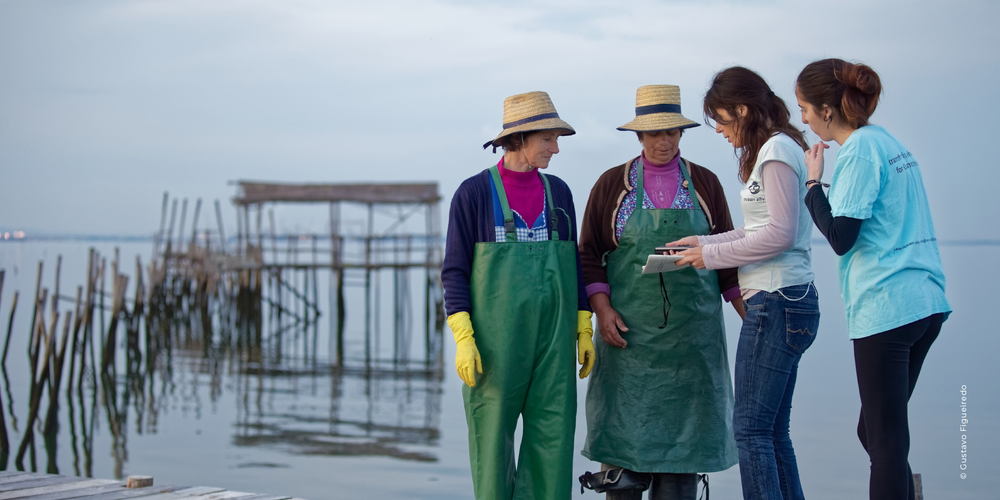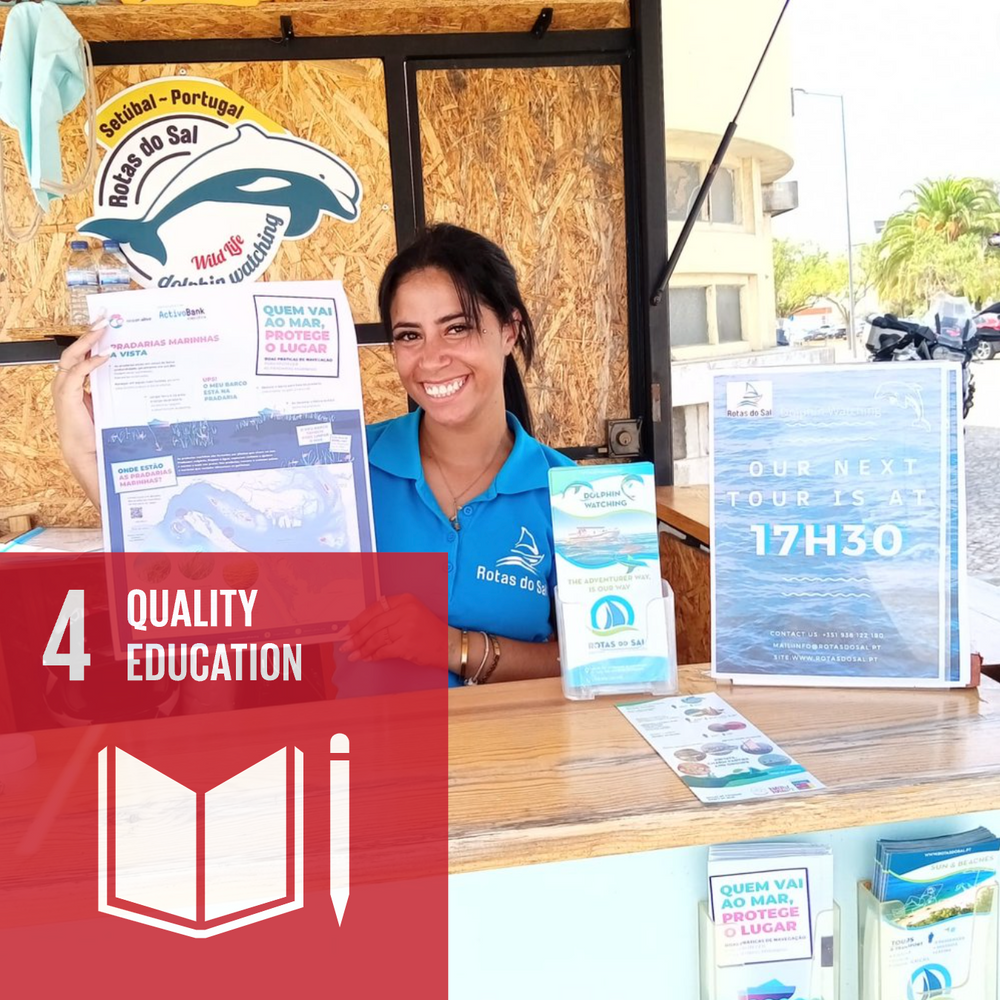
Setúbal, Portugal
This page details the UN Sustainable Development Goals being addressed by the SeaTrees seagrass protection project in the Sado Estuary of Setúbal, Portugal.
Sustainable Development in Portugal
We have partnered with Ocean Alive, Portugal’s first non profit cultural cooperative dedicated to ocean protection, to begin the conservation of 1 hectare of seagrass meadow in the Sado Estuary of Setúbal, Portugal.
Led and operated by women, this seagrass protection and community education project aims to safeguard a naturally emerging seagrass meadow in Cambalhao Bay. Unlike a conventional restoration project, the objective is to mitigate the detrimental impact of anchoring and poor navigation and protect the meadow.

Key Impact Metrics
- Conducts official scientific mapping of the newly emerging seagrass meadow.
- Engages in comprehensive research activities to understand and protect the ecosystem.
- Recruits "Seagrass Guardian" ambassadors from maritime touristic enterprises.
- Educates local staff on the meadow's value and implements good practices.
- Fosters engagement and contributions from ambassadors for future mapping and protection.
- Promotes marine education, behavioral changes, and conservation efforts.
- Advocates for national policy changes to protect Portugal's seagrass meadows.
- Empowers women in the fishing community through new professions and leadership roles in ocean conservation.
- Creates professions for local community members in marine education guides, awareness agents, and seagrass monitors.

Quality Education
Training Maritime-tourism companies (MTs) to become Seagrass Guardians, promoting an active role in the conservation of the Cambalhão Bay seagrass meadow.
This project, through its aims of conducting research, mapping the seagrass meadow, and recruiting "Seagrass Guardians" from maritime touristic enterprises, actively contributes to climate action by preserving this vital blue carbon sink and fostering sustainable ecosystem practices.

Gender Equality
This project collaborates with the Keepers of the Sea, a dedicated group of 18 women from the fishing community along the Sado River. These women, operating under the guidance and employed by Ocean Alive, play a crucial role in advocating for behavior changes within the fishing community to address major threats to seagrass meadows, including litter from shellfishing, anchoring on the meadows, and destructive fishing practices.
The Keepers of the Sea program empowers these women to become leaders in ocean protection, allowing them to develop new professions such as marine education guides, awareness agents, and seagrass monitors.
Through their active engagement, these women contribute to the fight against climate change, promote sustainability, and advocate for policies prioritizing environmental best practices, thus fostering gender equality within the context of marine conservation.

Climate Action
Led by women, this project aims to protect a naturally emerging seagrass meadow in Cambalhao Bay by mitigating the detrimental impact of anchoring and poor navigation.
The rapid depletion of seagrass meadows in Portugal has led to a scarcity of marine life, impacting the fishing community, particularly fisherwomen, resulting in unemployment and devaluation.
Additionally, the decline in seagrass has contributed to the diminishing resident dolphin population. Seagrass meadows, known as the "lungs of the sea," offer essential ecosystem services such as oxygen production, nutrient absorption, and carbon sequestration.

Life Below Water
This seagrass protection project aims to safeguard the invaluable ecosystem services provided by seagrass meadows. Seagrass leaves contribute to nutrient absorption and regulate water flow by trapping sand, dirt, and silt particles.
The global decline of seagrass meadows due to human activities poses a threat to these essential ecosystem services. In the Cambalhão seagrass meadow, our project focuses on preserving crucial marine habitats, acting as vital nurseries for fish and invertebrates, ensuring a safe environment for their eggs, larvae, and juveniles to mature.
This meadow hosts emblematic fauna species such as greater pipefish, eel, cuttlefish, and octopus, along with various fish, mollusks, crustaceans, and invertebrates. Through exploratory and monitoring activities, our project actively contributes to the conservation of these diverse marine species and their habitats, supporting the overarching goal of maintaining life below water.
